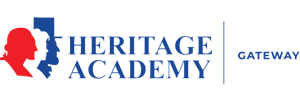SCIENCE.
Subject area goals:
- Scholars will discover the processes of the world around them and begin lifelong experiences in science.
- Scholars are required to take Conceptual Science, Biology plus two other science courses.
- College track scholars should have Biology, Chemistry and Physics.
DISTINCTION IN SCIENCE
COMPLETE REQUIREMENTS BY APRIL OF SENIOR YEAR
- Complete 4 science courses at least 2 of which are honors; must earn a “B” or higher in each course
- Overall, scholars must have a 3.0 GPA or better
- Scholar will complete an independent research paper or inquiry project related to a scientific topic of their choosing and department approval. They must ask a science teacher to be their mentor to develop their project. The project or paper will then be presented to a school panel.
